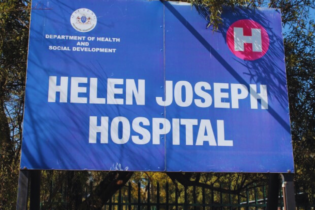The global professional services firm KPMG recently released its list of 100 most innovative and inspiring urban infrastructure projects in the world. Among the projects listed were six African infrastructure projects.
“This is a very proud achievement for the African continent. These projects show that Africa’s time truly has come, and that many of the challenges investors have traditionally associated with the continent are being dealt with. Even more importantly, the challenges are being addressed in cutting edge, innovative ways.” said DeBuys Scott, Director, Global Infrastructure and Projects Group at KPMG in South Africa. Here are the six projects. Brics cable projectThis project will link the BRICS economies, Brazil, Russia, India, China and South Africa via a 34 000 km fibre optic cable system to the United States. The cable will give the BRICS countries immediate access to 21 African countries. The project is expected to boost trade links and competitiveness of the five Brics countries. Imphandze Subtel Services (Pty) Ltd, a subsidiary of Imphandze Investments, i3 Africa (Pty) Ltd are listed on the project’s website as telecommunications licences in South Africa to land, operate and maintain the undersea cable in South Africa. O3b Networks project
The continent wide project is deploying a $1-billion, next-generation satellite network that combines the reach of satellite with the speed of fibre, providing an Internet backbone for people in Africa and other emerging markets with limited access to broadband. The project has a wide scope, aiming to connect users in 177 countries. O3b Networks was founded in 2007 by technology entrepreneur Greg Wyler who helped to create Africa’s first commercial 3G mobile and fiber-to-the-home (FTTH) network and in 2008 was ranked amongst the top 50 global technology trendsetters.
South Africa’s Durban waste-to-energy project
This 100 million rand ($ 12 million) project is funded by the eThekwini (Durban) city, the departments of trade and industry and energy, and the French Development Bank. The project involves the conversion of methane gas into electricity. The energy generated is supplied to up to 6 000 low income households in the municipality every day. Durban also generates funds from the project from the sale of electricity and carbon credits.
The 27 km railway line is being built by the Lagos State government in partnership with private firms. The railway line is expected to ease transport in Lagos State which is home to around 10 percent of Nigeria’s 160 million inhabitants. Eko Rail won the tender to provide equipment including rolling stock, signalling, and electric power, recouping its investment of around $400 million from passenger fares through a 25-year build operate transfer concession. KPMG noted that the project displayed ‘innovation in its financing structure’. Ethiopia’s Djibouti Railway
This $1.2 billion project is expected to reduce transportation cost for landlocked Ethiopia by connecting it with neighbouring country, Djibouti. This 656 km railway line will connect Ethiopia’s capital Addis Ababa with Djibouti. The line will be an important transportation link and export and import route for Ethiopia. The railway network will have eight main routes connecting about 49 urban centres by 2015. Lesotho’s PPP Queen Mamohato Memorial Hospital. The $120 million privately financed hospital in Lesotho capital Maseru is the first in Africa to be built through a “Public Private Investment Partnership” (PPIP). The 390 bed Queen ‘Mamohato Memorial Hospital was built to replace the deteriorating 450 bed Queen Elizabeth II Hospital. The hospital was built by a consortium headed by South African private medical giant Netcare. The Queen Mamohato Memorial Hospital will provide clinical and non-clinical services, and support two-million people. Source: Ventures Africa






